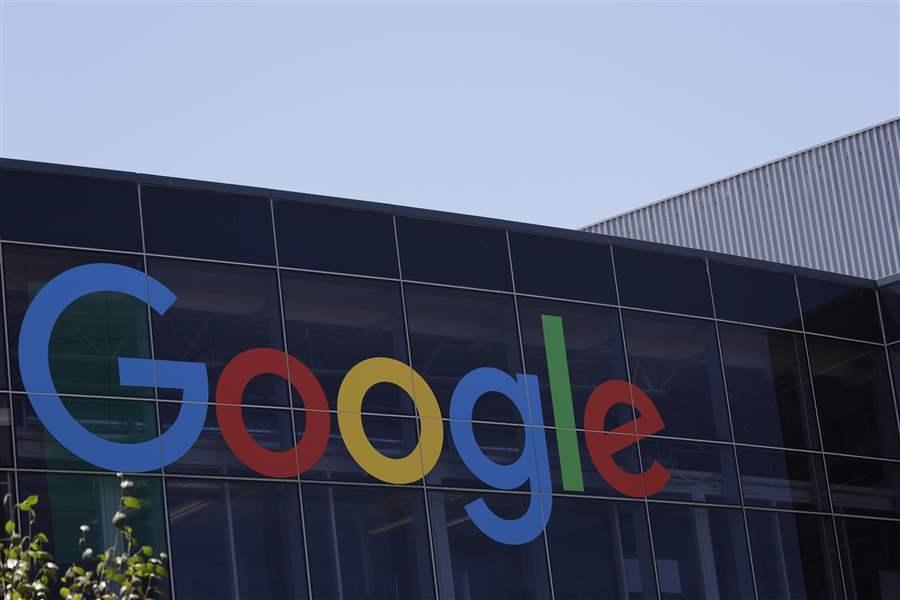
FREE SPEECH FOR THEE?
Tech giants should not be trusted with free expression
10/27/2017
Google has been accused of censoring content all over its platform — from blacking out certain areas on Google Maps to selectively filtering content for Google News.
ASSOCIATED PRESS
Once again, a technology giant has been accused of using its power to silence opinions it disliked or disagreed with.
Prager University, a nonprofit that creates educational videos with conservative slants, has filed a lawsuit against YouTube and its parent company, Google, alleging that the company is censoring its content.
VIDEO: Should we trust tech companies to regulate speech?
PragerU claims that more than three dozen of its videos — covering topics such as the Korean War — have been restricted by YouTube over the past year. As a result, those who browse YouTube in “restricted mode” — including many college and high school students — are prevented from viewing the content. Furthermore, restricted videos cannot earn any ad revenue.
PragerU says that by limiting access to their videos without a clear reason, YouTube has infringed upon PragerU’s First Amendment rights.
This is merely the latest exchange in a series of battles over how tech companies police expression on their platforms.
The Intercept’s Glenn Greenwald has long claimed that allowing tech company executives to police speech as they see fit will ultimately lead to disaster.
At some point, it will hopefully become clear that demanding Silicon Valley executives regulate online speech is a terrible idea https://t.co/xiNMbuNtxy
— Glenn Greenwald (@ggreenwald) October 12, 2017
In a piece on the subject, Greenwald asked readers “whether you really want these companies’ managers to be making such consequential decisions about what billions of people around the world can — and cannot — see, hear, read, watch and learn.”
The clear answer should be no.
Tech companies, such as YouTube and Twitter, have been enforcing opaque speech codes that have censored users from all over the political spectrum.
Twitter is likely the most high-profile example, having suspended a number of users for reasons that are not clear. Everyone from Al Jazeera Arabic to Rose McGowan to Milo Yiannopoulos (whose ban was permanent) has received the axe from the powers that be at Twitter.
YouTube has received criticism for pulling ads from videos deemed to have hateful or offensive content in order to protect advertisers’ brands. Many initially championed this decision, but walked it back when it was reported that activist YouTube channels, “including one devoted to sharing stories of abuse of women and another run by a transgender activist,” were affected by the change.
Google, for its part, has censored content all over its platform — from blacking out certain areas on Google Maps to selectively filtering content for Google News.
To make matters worse, many of these tech companies masquerade as defenders of free expression, claiming that their outlets are open platforms. “At YouTube, we believe everyone should have a voice,” YouTube wrote in a March blog post. “Since our founding, free expression has been one of our core values, allowing creators to share their ideas with over a billion fans from around the world.”
Twitter once called itself “the free speech wing of the free speech party.”
Now, the company has tempered its support for free expression. “We believe in freedom of expression and in speaking truth to power,” writes Twitter on its rules page, before adding a caveat. “But that means little as an underlying philosophy if voices are silenced because people are afraid to speak up.”
On a page devoted to promoting an open Internet, Google writes that “the flow of ideas and open access to information on the web helps communities grow and nations” prosper.
Yet all of the major tech companies, and many other firms within the telecommunications industry, have shown themselves to be comfortable playing the role of censor.
Read last week’s ‘Free Speech For Thee?’ column
What is even more remarkable is that many people seem to feel that these companies don’t go far enough. Every day, users register complaints that people with unfavorable and even reprehensible opinions have access to the same platforms the rest of us do.
But, to paraphrase Greenwald, while a user may be happy about what is censored today, there is a very good chance they will object to the next decision.
As the influence of companies like Google, Twitter, and beyond grow in our digital world, our society will have to take a hard look at just how much we trust them to preserve our right to express ourselves.
It should be clear that these companies have no right to play censor in a nation committed to the First Amendment, and they have shown themselves to be arbitrary users and abusers of such a power.
Contact Will Tomer at wtomer@theblade.com, 419-724-6404, or on Twitter @WillTomer.